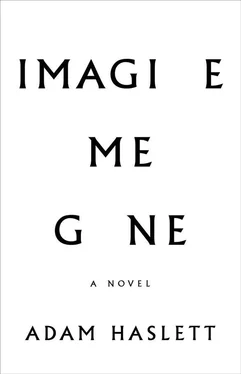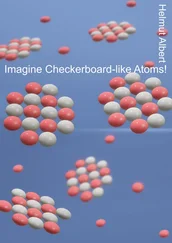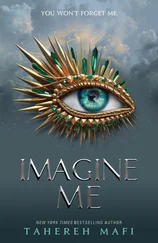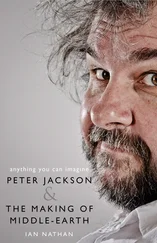“I wouldn’t think reptiles made the best company.”
“Did Dad want to help him because he’s black?”
I’m not sure how to answer this. I don’t know why John’s taken an interest in getting minority businesses started. It may have begun through the Small Business Administration, some advantage to that sort of investing. But if so he’s carried it well past that: a Hispanic magazine in Chicago, a restaurant chain started by a black football player. It’s a fair amount of what he does. If he were American, I suppose you’d say he was lending a hand in the next stage of civil rights, supporting black ownership, and maybe that’s what he’s doing — we don’t talk about it — but because he’s English that doesn’t seem the best way to describe it. He’s not caught up in that particular history. I’m not sure what the draw is, though I’m all for it, certainly.
“I suppose your father enjoys his company,” I say. “I’d say that’s mostly why he wanted to help him.”
“I think one of the reasons he’s sad is because he’s black.”
“Don’t say that, Michael. You mustn’t say that. There’s no reason someone should be sad because of what race they are. It has nothing to do with that. Doesn’t he live on his own? That could make anyone lonely.”
“That’s not what I mean. I don’t mean that being black makes him sad, like he doesn’t want to be black. It’s something else.”
“What has he been talking to you about?”
“Nothing. The snakes.”
“Well, I think you must be imagining it, then. People aren’t lonely because of the color of their skin.”
He ruminates on this awhile as we enter the meadow. Half of it is covered in shade, and it’s in the shade that the buds of the wild primroses have begun to open, their heart-shaped yellow petals peeling away from the stamens. Caterpillars feast on the seeded heads of the milkweeds. Butterflies flutter in the high grass. We have a field behind our house in Samoset, but not so lovely and secluded as this.
Michael seems to take no notice at all of where he is.
“If you were a slave, you’d be depressed,” he says. “And you’d be terrified.”
“What are you talking about? Mr. Carter runs a business. He lives in a perfectly nice house. I hope you don’t say this kind of thing to him. He could be quite offended. He has nothing to do with slavery. Where did you get that idea?”
“You can’t say that. His ancestors, they were slaves.”
“Michael: What has he been talking to you about?”
“Nothing. I told you.”
“So you’re just dreaming all this up on your own?”
“Never mind. You don’t get it.”
This is one of his new refrains: you don’t get it . I suppose I should be used to it coming from my children. And I would if I thought the phrase meant for Michael, as it already does for Celia, an attachment to a world of peers. But when Michael says it to me it’s not because he’s caught the first hints of adolescent cynicism from some commiserating friend. He’s referring to something else, something he sees alone. It’s not just I or his siblings who don’t get it.
The ground slopes down from the meadow and a few minutes farther on bits of clear sky show through the gaps in the trees as we approach the cliff above the beach. It’s a sharp drop-off, thirty feet or more. The way down is to the right, along the angled sheet of granite running from the trees to the ocean. It’s lined with cracks, amazingly straight and parallel and sealed with some kind of black magma however many thousands of years ago. Boulders sit on it like old men keeping watch for returning ships.
The beach itself is small, just a clearing in the rocks, really, with hard-packed sand, where a flock of plovers skitters through the thin water of the retreating waves. Farther back, the sand is dry and powdery, strewn with seaweed and driftwood. This is where we’ve found the sand dollars the last couple of years, which the children put in the saucepans and buckets they collect the crabs in, furnishing their little aquariums with other inhabitants of the sea.
Michael, eyes down, writes in the sand with his stick. He’s only a few inches shorter than I am and a year from now he’ll be my height, and soon enough taller altogether. He doesn’t know what to do with his new body, how to sit or stand, which is why he never stays still, hiding in constant motion. Or it’s partly why, the rest being his ceaseless brain. His limbs twitch in response to it, more bother than pleasure, let alone athletic joy. A whole dear, unknowable creature, molting before my eyes. And if in that strange little office off the ward of the hospital in London the doctor had said to me, No, you might want to reconsider what you’re getting yourself into, you might want to put the marriage off, if he hadn’t asked me if I loved John, the unthinkable would be possible: Michael wouldn’t be here at all. His name loses meaning when I repeat it too often to myself, but I have no other word to designate the mystery of him, my firstborn. There’s something illiberal about the way infants are thrust into the hands of people who have no idea what they’re doing, who can only experiment. It’s unfair, he had no choice.
“Aren’t you going to look for sand dollars?”
He keeps writing, giving no indication that he’s heard my question.
“What does that mean?” I ask, coming up behind him to read what he’s scrawled in capital letters: YOU MAKE ME FEEL MIGHTY REAL.
“It’s a lyric. By Sylvester. You don’t know Sylvester?”
“Is that disco?”
“That’s an understatement. But, yes, you can call it disco.”
“You like those records so much. Why don’t you ever dance to them?”
He rolls his eyes and walks away toward the far side of the beach, scraping a curving line in the sand behind him. He’s at that turntable of his hours a day with his headset on but he never does more than move his head back and forth. It seems a pity to me that he doesn’t take physical pleasure in it the way we did, and sometimes still do, with our music.
“We’re going to move back to England,” he says, still facing away from me. “Dad’s going to move us back there.”
Something in the tone of his voice brings me to a halt. It’s been cracking lately, dropping down a register at the oddest moments and then skipping back up into his boyish chirp, but these words come out complete in his new lower range, a sound from his chest, not his throat, and he utters them in a perfectly matter-of-fact way. Most disconcerting of all, he says them slowly, and he never speaks slowly.
“What are you talking about?” I say. “Did he tell you that?”
It wouldn’t be beyond John, in some abstracted mood, to mention such a thing, thinking aloud to the children with no cognizance of where it might lead their own thoughts. If it’s true, I’ll wring his neck — to hear it from Michael first.
“Well, did your father say that? Answer me.”
He turns around at my raised voice and shakes his head.
“So why do you say it?”
“Why are you angry?”
“I’m not angry. I just want you to tell me why you said that.”
“Because it’s true.”
He’s got John’s black hair, his hazel eyes, the same pale complexion. It’s clear as day they’re father and son. Which is only natural. But why, then, staring at this utterly familiar face, stilled now by something invisible, something new but very old — why is it that I am so terrified?
When Dad got us back to shore, Michael was waiting for us on the jetty. He told Dad that Mom wanted to see him. Dad went up the wooden steps to the house, and Alec and I followed Michael the other way, out onto the rocks. Michael started running, skipping from rock to rock. I kept up, watching his feet and following his jumps, avoiding the slippery edges. Alec called from behind for us to wait. Michael slowed down but kept going toward the point that we couldn’t see past from the house, the point where the shoreline turned onto the open ocean. When he got to a big flat rock just above the spray he stopped and stared out at the waves breaking onto the boulders. Alec caught up to us and immediately went down closer to where the spray was blackening the gray stone and then scurried up again each time just before it landed, looking back at us to see if were watching him.
Читать дальше












